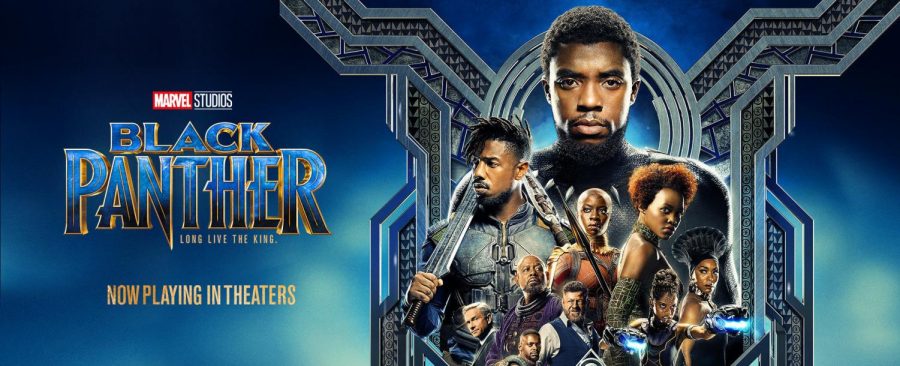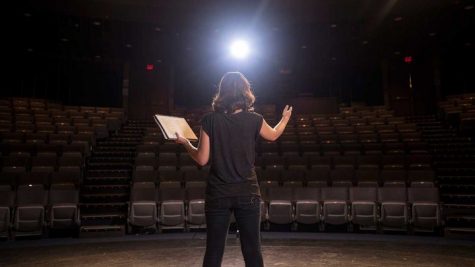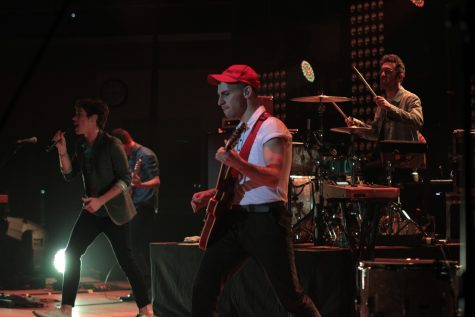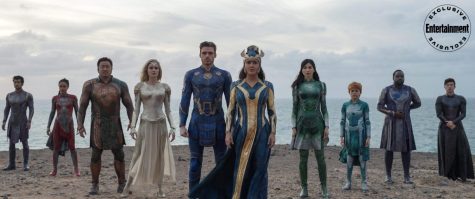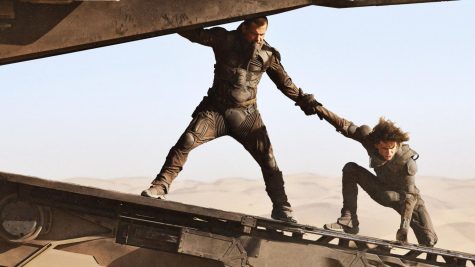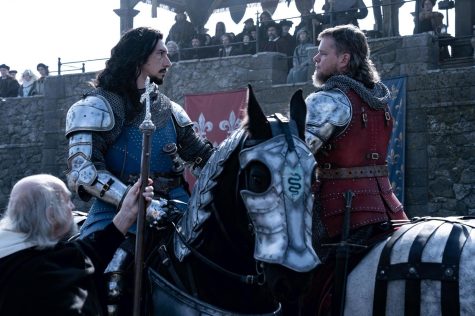Review: All the stars align for Marvel’s ‘Black Panther’
“Black Panther” is a film that celebrates African culture and has sparked discourse. Photo is promotional material for the movie / Disney.
With the newest Marvel-blockbuster coming to theaters this past weekend, “Black Panther” elevates the brand to new heights with refreshing characters, plots, costume design, locations, soundtrack and culture.
Clawing its way to the top of the box office this past weekend, “Black Panther” allows viewers to buy into the idea that Marvel movies can work as effective vehicles hard-hitting, relevant messages while also providing entertaining superhero fun.
The story begins unfolding as T’Challa (Chadwick Boseman) must ceremoniously earn his kingship to Wakanda following the recent passing of his father. Once receiving the crown, a lot of responsibility is placed on him to make burdensome decisions that will affect the community and people for years to come. As the story progresses, T’Challa learns more about some potentially regrettable decisions made by his father which result in what he calls “a monster of our own making.”
Erik Killmonger (Michael B. Jordan) is also struggling to gain the throne and bring his controversial ideologies to the leadership of Wakanda, raising interesting questions about how to effectively interact with other nations.
Stepping away from cameos and collaborations, director Ryan Coogler presents a relatively Wakanda-local tale existing almost in a vacuum from most other Marvel films. Working to familiarize the audience with the traditions and people of Wakanda, Coogler establishes a dark mood and plot involving deceit and death that the characters are constantly struggling and working to resolve throughout the runtime of the film.
“Black Panther” also actively confronts issues based around foreign aid, immigration and international relations in a way that is unexpected yet important, especially in a modern superhero movie.
A noteworthy feature of the film is the dynamic cast in which new and old faces collide. The return of Chadwick Boseman playing the lead of T’Challa almost falls out of focus in comparison to the galvanized yet motivated performance by Michael B. Jordan. Letitia Wright, who plays T’Challa’s sister, also gives a comedic and confident portrayal of Shuri, and she nearly steals the screen almost every time she appears.
Alongside these three are the fierce Wakandan bodyguards — the Dora Milaje — lead fearlessly by Okoye (Danai Gurira). She often shares screen time with the stubborn but empathetic Lupita Nyong’o (Nakia); as they’re both fighting to remove King Killmonger from the throne. Andy Serkis also delivers a notable interpretation of Ulysses Klaue in which only his arm falls victim to CGI.
In the words of Coogler during an NPR interview, audiences “want to see something fresh, they want to see something new, but also feels very real.” His movie gives viewers a new hero to strive to be like through failure and redemption alike.
Marvel repeatedly displays how these mythical superheroes can be grounded in realistic issues and carry heavy themes that most people can relate to on some level. The movie closes with powerful words from Erik Killmonger that should be contemplated and should inspire more movies in this genre to integrate and explore in their own screenplays.




